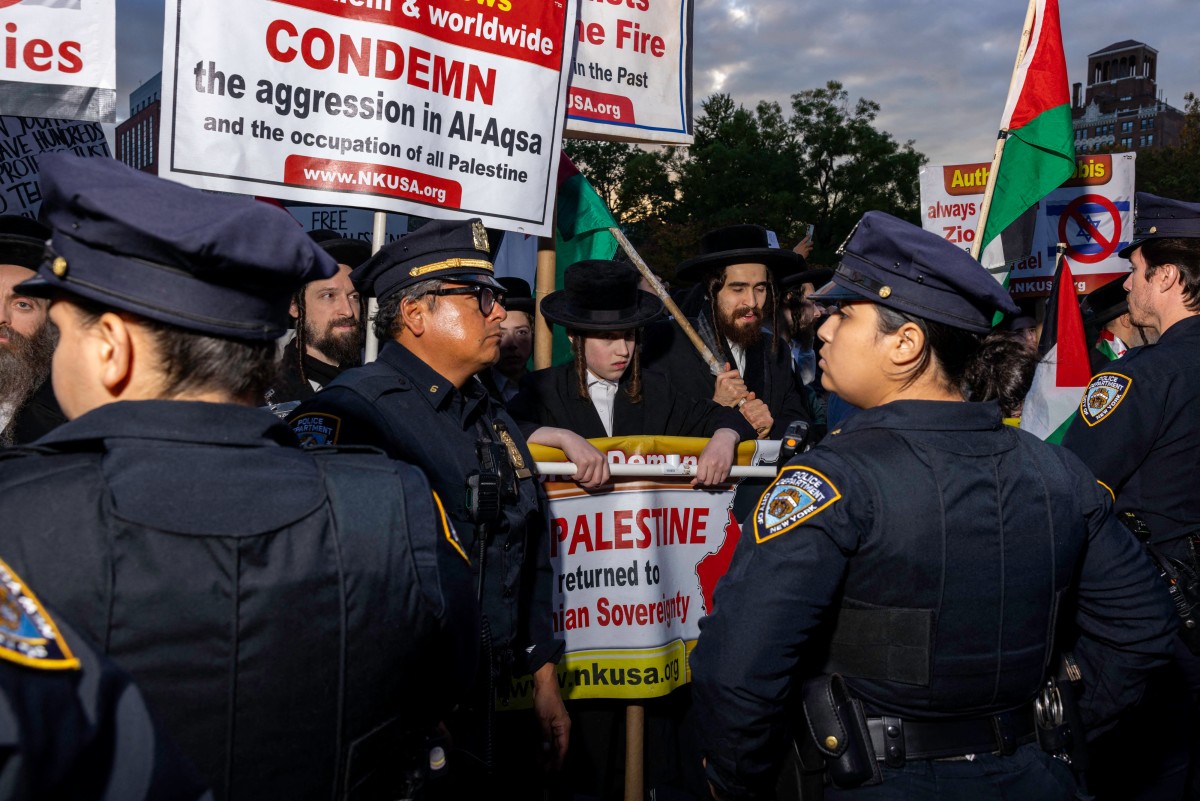Catastrophic Blast Shakes Gaza Hospital, Sparks Global Outcry: Over 200 Lives Lost
In a heart-wrenching incident that unfolded on Tuesday, at least 200 lives were tragically lost as a powerful explosion ripped through the Ahli Arab Hospital in Gaza. The repercussions of this event were swift and global, sparking widespread condemnation and igniting violent protests in several Muslim nations.
The blame for this devastating incident was fiercely exchanged between Israel and Palestinians, adding another layer of complexity to an already tense situation. While en route to the Middle East, U.S. President Joe Biden expressed his deep sadness and outrage at the incident.
Hamas authorities in Gaza pointed to the latest wave of Israeli airstrikes as the cause of the explosion. In contrast, the Israeli Defense Forces attributed it to a misfired Islamic Jihad rocket launched by Palestinian militants. Unfortunately, neither account could be independently corroborated.
On the ground, chaos and anguish prevailed as the injured and deceased were rushed to nearby medical centers. These facilities became the scene of mourning, with numerous bodies covered in blood-stained sheets and white plastic wrap lining the floors. Desperate relatives tried to identify their loved ones amidst the turmoil.
Dr. Ghassan Abu Sittah of the medical charity Doctors Without Borders (MSF) recounted the horror, stating that the explosion caused the operating room’s ceiling to collapse. He emphasized the importance of safeguarding hospitals and appealed for an end to the bloodshed.
The backdrop to this tragic incident is eleven days of relentless Israeli airstrikes on Hamas-controlled Gaza, ostensibly in retaliation for the brutal killings that took place in October during cross-border raids.
Even though the exact cause of the hospital blast remained unclear, the international community’s condemnation was immediate and widespread. The European Union’s foreign policy chief, Josep Borrell, demanded the establishment of clear responsibility and accountability for this crime.
Protests surged across the Muslim world, from Tripoli to Tehran. In Jordan, home to millions of Palestinian refugees, demonstrators attempted to storm the Israeli embassy. Lebanon witnessed clashes between protesters and security forces outside the U.S. embassy, with stones hurled and a building set on fire. Hezbollah, Lebanon’s influential Iran-backed militant group and political party, called for a “day of rage.”
The impact of these events at the Ahli Arab Hospital and the swift backlash threatened to disrupt President Biden’s significant visit to the Middle East, which was set to begin on Wednesday. A four-way summit involving Palestinian President Mahmud Abbas, Jordanian King Abdullah II, and Egypt’s President Abdel Fattah al-Sisi in Amman was canceled, with the condition that it would be rescheduled once a decision to halt the war and the massacres had been reached, as explained by Jordanian Foreign Minister Ayman Safadi.
Despite these challenges, President Biden’s visit to Israel was confirmed. He is expected to express solidarity with Israel regarding the Hamas attacks, which also claimed the lives of 31 Americans. The White House also seeks measures to mitigate the humanitarian impact of Israel’s military response and facilitate aid delivery to the blockaded Gaza Strip.
The international community has grown increasingly alarmed by the devastating consequences of the conflict on Palestinian civilians. According to the Hamas-run health ministry, approximately 3,000 Palestinians have lost their lives during the air campaign, including several senior figures in the organization. Entire neighborhoods have been razed, and survivors are grappling with diminishing supplies of food, water, and fuel.
Washington’s concerns extend to preventing the conflict from spilling over into the West Bank, Lebanon, and beyond, as well as seeking clarity from Israel about its military plans. John Kirby, a spokesperson for the White House National Security Council, stated that President Biden would pose tough questions to Prime Minister Netanyahu about his war plans. Meanwhile, tens of thousands of Israeli troops have been deployed to the border in readiness for a full-scale ground offensive.
Prime Minister Benjamin Netanyahu has vowed to “defeat Hamas,” although the exact military objectives remain unclear. The hospital incident represents one of the darkest chapters in Israel’s 75-year history, bearing painful echoes of past events and eroding confidence in the country’s security services.
Before the tragic incident at the Ahli Arab Hospital, the facility had been a shelter for the wounded and displaced due to an intense Israeli bombing campaign. Israel had issued evacuation orders to one million residents of northern Gaza in anticipation of a potential ground invasion.
The Archbishop of Canterbury, Justin Welby, representing the Anglican church, which oversees the Ahli Arab Hospital, highlighted that the hospital had already been hit by “Israeli rocket fire” on October 14, injuring four staff.
The United Nations Relief and Works Agency (UNRWA) reported that more than one million Palestinians, nearly half of Gaza’s population of 2.4 million, had been forced to flee their homes due to the ongoing crisis.
The situation in Israel was not without its share of grief. Dozens of mourners gathered for the funeral of five members of the same family who lost their lives during a militant attack on their kibbutz at Kfar Aza. All five coffins were draped in Israeli flags.
Diplomatic efforts to secure the release of at least 199 hostages held by Hamas gained momentum, with Turkey engaging in talks with the organization for their safe return. A video released by Hamas showed one of the captives, French-Israeli woman Mia Shem. Her mother, Keren Shem, made an emotional plea for her daughter’s safe return, appealing to the world to bring Mia back home.
The tragic events at the Ahli Arab Hospital serve as a stark reminder of the urgent need for peace and humanitarian relief in the region, as well as the daunting challenges faced by leaders attempting to navigate this complex and deeply entrenched conflict.












